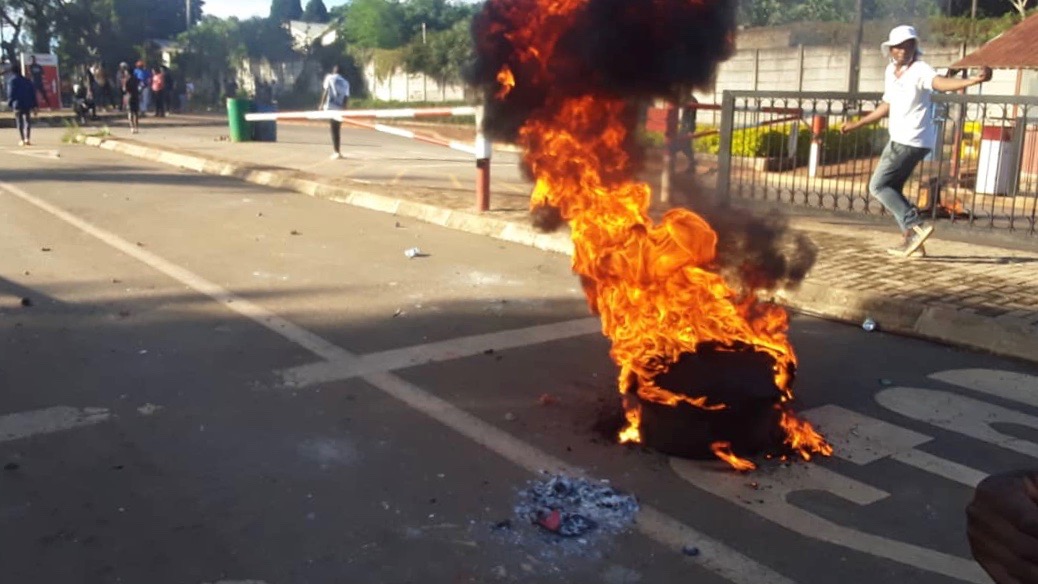On Monday, April 11, students were evicted from the Kwaluseni campus of the University of Swaziland by heavily armed soldiers and the police who fired bullets and tear gas injuring several students.
The students have been boycotting classes since April 7, demanding the transfer of living allowances that remain unpaid for many since the academic year began in November 2021.
In the Kwaluseni campus on the outskirts of Swaziland’s commercial hub Manzini city, the students’ strike had entered the fourth day when the crackdown was unleashed.
“We were asking for our unpaid allowances. We were demanding proper accommodation and security on campus. Students no longer have safe hostels; there are no lights inside. There have been several robberies,” said Gabi Ndukuya, chairperson of the Students Representative Council (SRC) at the university’s Kwaluseni campus.
At around 2:30 on Monday afternoon, Ndukuya said, “the university issued a memo asking us to vacate the campus by 3. The students were given 30 minutes!” There are around 3,500 students on this campus, coming from around the country including remote villages and towns.
Soon after the deadline passed, soldiers and the police, accompanied by the university’s security officers, invaded the campus and forced the students out by firing tear gas and live bullets, injuring many. “I personally rushed two students to hospital. They had collapsed after choking on tear gas,” Ndukuya said.
“Right now, soldiers and police are all over the campus, while students are stranded outside the gates. Those coming from far off have nowhere to go. Without their living allowances, they do not even have the money to return home,” she told Peoples Dispatch later that evening.
Students from the campus in Luyengo town, south of capital Mbabane, are also reportedly locked out. Later at night, the SRC at the Mbabane campus of the University of Swaziland resolved in a meeting to boycott classes in protest from Tuesday, April 12.
Officially known as the University of Eswatini (UNESWA) after King Mswati III renamed the country, the university is a hotbed of anti-monarchist sentiment.
Protests against the killing of a student from this university by the police last year had snowballed into an unprecedented nation-wide pro-democracy movement. These protests, for the first time in the country’s history, swept through the rural areas that were until then perceived to be loyal to the king.
After these peaceful rallies and demonstrations were met with violence by the security forces, an uprising erupted in the industrial areas. Several businesses and industries owned by the king, who controls most of the economy and runs it for his personal profit, were torched.
The king fled the country in late June amid this uprising and returned only the following month. By then, his army had killed at least 70 people. However, the protests as well as the crackdown by the security forces continues.
The Communist Party of Swaziland (CPS) – several of whose members have been persecuted, shot at and exiled – is organizing “defiance actions” on Tuesday, April 12. The date marks 49 years since King Sobhuza II, father of the current monarch, repealed the constitution, dissolved the parliament and assumed absolute power after banning all political parties.
“We aim to get into communities and mobilize them, and also draw students into the streets,” Pius Vilakati, the international organizer of CPS, told Peoples Dispatch.
Parallel to these actions, in neighboring South Africa, the border with Swaziland will be blockaded at 10 am local time at the Oshoek and Matsamo posts in a solidarity action led by the National Education, Health and Allied Workers’ Union (NEHAWU).





